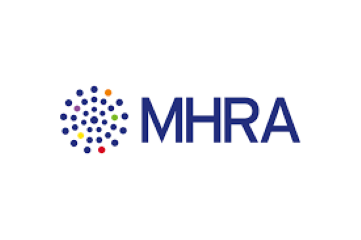False positive rates?ranged from 0% to 41%, meaning some labs incorrectly identified bacteria that weren’t present in the sample

A groundbreaking international study led by the UK’s Medicines and Healthcare products Regulatory Authority (MHRA) has revealed alarming inconsistencies in gut microbiome research worldwide, exposing a pressing need for unified global standards.
The investigation, involving leading laboratories across 11 countries, tested identical gut microbiome samples and found accuracy in identifying bacterial species ranging from 63% to 100%, with some labs even reporting bacteria that weren’t present at all.
As microbiome research increasingly informs treatments for conditions from inflammatory bowel disease to colorectal cancer, these findings raise urgent questions about the reliability of existing methods—and signal a critical step toward establishing robust, standardised benchmarks for gut health science.
As many as 23 laboratories from 11 countries across 4 continents were asked to use the newly developed World Health Organization (WHO) International Reference Reagents – containing DNA of known bacterial compositions – to determine whether the methodologies were suitable. When they analysed these samples:
* False positive rates ranged from 0% to 41%, meaning some labs incorrectly identified bacteria that weren’t present in the sample
* Sample diversity estimates varied considerably, with labs identifying as few as 12 or as many as 185 different bacterial species in the same sample
Microbiome research increasingly informs treatments for conditions including inflammatory bowel disease, metabolic syndrome, irritable bowel syndrome and colorectal cancer. However, contradictory findings between studies have undermined confidence in this rapidly expanding field.
The study identified that a key source of variation may arise from the application of “high throughput sequencing” methods applied to characterise gut microbiome samples. These variations arise from multiple steps in this method including choice of DNA sequencing technology, bioinformatics software and databases used for analysis, version of reference databases (even minor updates significantly affected results).
Notably, the research demonstrated that appropriate analysis methods could achieve accurate results with far fewer resources than previously thought (depending on the sample) – one laboratory achieved quality standards using approximately 890,000 DNA sequence reads, compared with others using an average of 25.4 million reads.
The study establishes Minimum Quality Criteria for four key reporting measures that laboratories worldwide can now use to validate their microbiome analysis methods. These standards are based on real-world data rather than theoretical predictions.
This UK government-funded research has created physical quality standards that laboratories worldwide can now use to assess the accuracy of their own detection methods. This means better diagnosis and treatment for everyone.
Saba Anwar, lead author of the study and Senior Research and Development Scientist at the MHRA, said: "This benchmark study highlights the true level of variability in microbiome data across the world and across sectors, underscoring the critical need for the use of WHO International DNA Gut Reference Reagents to elevate the quality of data in microbiome research. By pinpointing the sources of bias in existing methodologies using reference reagents, we can accelerate innovation and method optimisation.”

Subscribe To Our Newsletter & Stay Updated